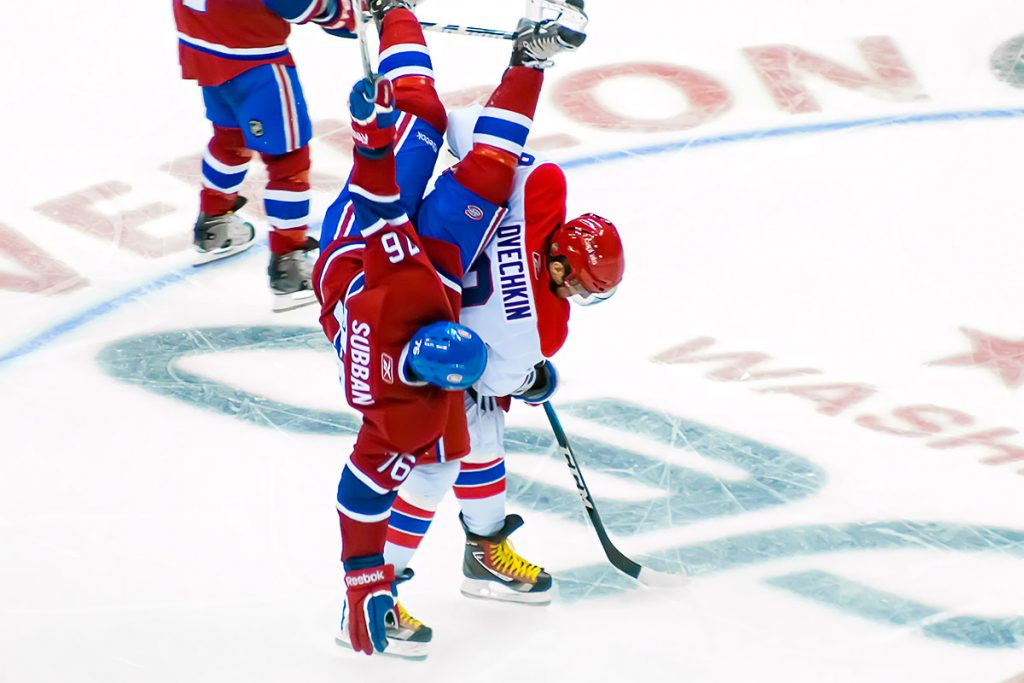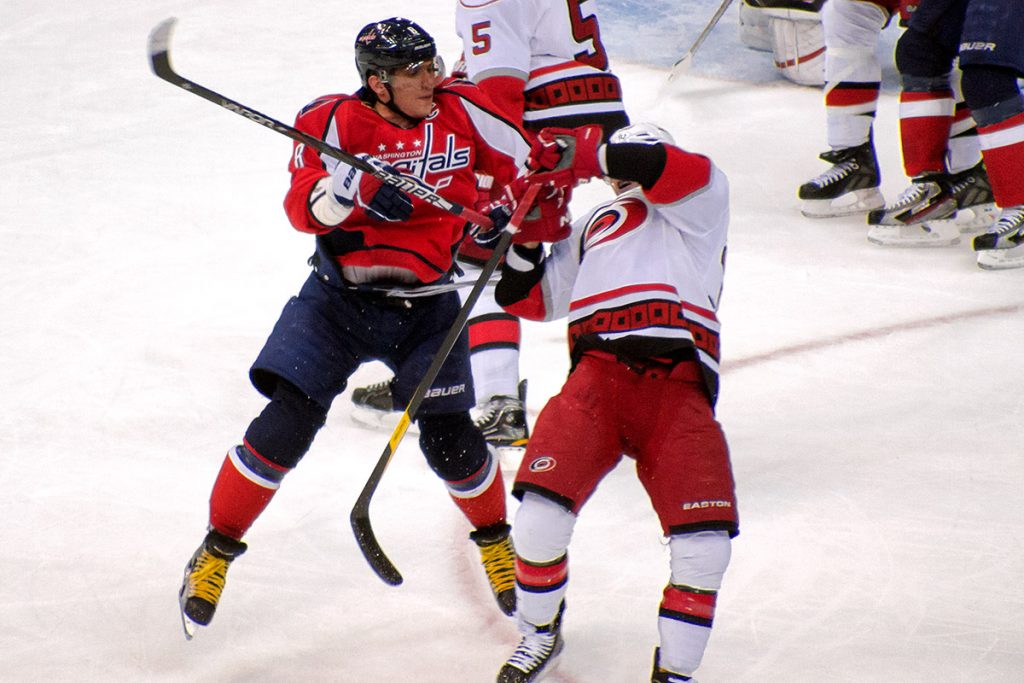Hockey has been touted as a sport near the top of the totem pole in terms of inherent risk for concussion. You don’t have to look much beyond the fact that the game is played on a sheet of ice to realize why head injuries are so common. Add some body contact into the mix, slapshots that rifle a dense rubber puck over 100 miles an hour, and players with long fiberglass sticks who skate faster than a car drives on a residential street and you have a tragic recipe for head trauma, otherwise known as hockey.
Ding Dong No One’s Home
Ever since the dawn of hockey, players have been getting their “bell rung” regardless of whether they are wearing a helmet or not. The game of hockey is an intense test of determination and power and as a result of such ferocity at some point, if you play the game, it is inevitable that you will get injured. Injuries are an all too familiar part of the game and many are only now realizing that getting your “bell rung”, or in other words receiving a concussion, can have grave consequences.

WASHINGTON, DC – February 1, 2011: Washington Capitals forward Alex Ovechkin (#8) upends and topples Montreal Canadiens defenseman P.K. Subban (#76) with a check during their NHL ice hockey game at Verizon Center. Source: Flickr
Despite more information being made accessible to the general public (players included) regarding concussions and their relation to chronic traumatic encephalopathy (CTE), it seems nearly every week another player out with a concussion, some taking longer than others to return. A concussion is noted by the American Association of Neurological Surgeons as being an injury to the brain that results in temporary loss of normal brain function, which is usually caused by a blow to the head. The brain is surrounded by spinal fluid which acts as a barrier between the soft tissue of the brain and the hard bones of the skull. Any jolt or hit to the head can cause rapid movement of the brain in the cranial cavity potentially damaging brain cells and tissue. Concussion symptoms vary depending on the intensity of impact but in general, can last for less than a day or persist for weeks – even months.

WASHINGTON, DC – March 6, 2012: Washington Capitals forward Alex Ovechkin (#8) hits Carolina Hurricanes forward Patrick Dwyer (#39) during their NHL ice hockey game at Verizon Center. Source: Flickr
Millions or Brain Damage?
To help reduce such head injuries the National Hockey League (NHL) implemented a new concussion protocol two years ago. The new procedures included off-ice education for players regarding concussions as well as mandatory removal of a player from the game for an acute evaluation if he is hit and a concussion is suspected. Contrary to recent amendments, concussion rates are as high as they’ve ever been in the history of the sport, but, despite this, players like Rick Nash are making use of the off- ice education. The six-time All-Star has called it quits at the young age of 34 due to concussion-related symptoms, passing up millions of dollars in hopes of saving his mental health. With almost anyone who laces up the skates, their dream is to make it to the big leagues but many fail to realize that the dream often comes at a price, and there is no amount of money that can reconcile for serious brain damage.
Written by: Riley Cox




